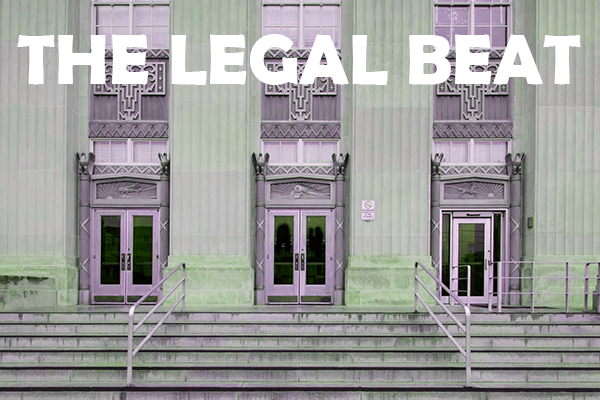|
RCBJ-Audible (Listen For Free)
|
The Legal Beat
Town of Orangetown Stands Its Ground on Rockland Cider Works – Files Papers Supporting Dismissal of Cidery’s Claims
The Town of Orangetown filed papers this week in Rockland County Supreme Court in support of its efforts to dismiss a suit filed by Rockland Cider Works. The cidery operation at Van Houten’s Farm in Orangeburg sued the Town in January asking a Rockland County Supreme Court judge to declare its operation at 68 Sickletown Road in Orangeburg as zoning compliant.
In June of 2021, the Town, through its Director of Planning, said it wasn’t – that a cidery was not a permissible use at that location. Rockland Cidery says it is, claiming that an ambiguity in the Town’s Zoning Code should be interpreted in its favor, and has asked a judge to enjoin the Town from taking action against the Cidery operation.
The Town says the cidery was required to appeal the Planning Director’s adverse decision to the Town’s Zoning Board of Appeals (ZBA), and that its failure to do so precludes the court from deciding the issue. Essentially the town says the cidery did not “exhaust its administrative remedies” and therefore its case should be dismissed.
Rockland Cidery says a trip to the ZBA was unnecessary and that even if it was an essential step, the court should excuse its non-compliance and hear the case. The cidery says the court could decide the issue as interpreting the zoning code is a pure “matter of law” that courts regularly decide. The town disagrees, claiming the details of the cidery’s operation are mixed questions of fact and law, and that the ZBA was the right forum to decide these issues – that’s what ZBAs are designed to do.
The Cidery also argued the court should hear the case under an “irreparable harm” exception to requiring the exhaustion of administrative remedies. The Town disagrees, asserting that had the cidery appealed to the ZBA, it would have had an automatic stay of any enforcement action until the ZBA ruled on the case and would not have suffered any harm. The cidery, the town argues, did not appeal to the ZBA, and cannot now claim irreparable harm stemming from its own decision to skip the ZBA appeals process.
Also, the cidery argues that going to the ZBA would have been futile, and that when an appeal to the ZBA is futile, the court can decide the issue. The town took exception to that argument, saying that there is no evidence the ZBA would be biased against the cidery or that the cidery would not have been provided a fair hearing.
The case was originally assigned to Judge Robert Berliner who left the bench last Friday. A new judge is yet to be assigned. In the meanwhile, Judge Berliner’s temporary order maintaining the status quo stands, and the cidery operation continues pending further action by the Court.
CUPON’s Suit Against the Village of Chestnut Ridge Dismissed For Want Of Standing
A United States District Court judge from the Southern District of New York dismissed a complaint filed by Citizens United To Protect Our Neighborhoods (CUPON) and three residents of Chestnut Ridge alleging the Village of Chestnut Ridge violated the law when it passed a Local Law amending its zoning code allowing places of worship in residential zones as a “permitted use” instead of under a “special permit” as required by an earlier version of the zoning code.
The new law created three categories of use: (1) residential gathering places; (2) neighborhood places of worship; and (3) community places of worship. The differences between the three categories centered around the size of the building, the number of worshippers, and parking.
The heart of the plaintiffs’ complaint was that the law was designed, reviewed, and implemented to favor the Orthodox Jewish Coalition in violation of the First Amendment Establishment Clause. The plaintiffs sought declaratory and injunctive relief against the village.
The village asked the court to dismiss the case, challenging CUPON and the individual plaintiffs’ right to bring the suit – essentially arguing that neither CUPON nor the individual plaintiffs had standing to challenge the law. The court agreed and dismissed the complaint, never deciding if the law as passed violated the Establishment Clause.
The judge ruled that the individual plaintiffs could not articulate a concrete and particularized injury they suffered under the new zoning law. The court said their grievances were too “generalized” and insufficient to establish standing.
The court also rejected the argument that the plaintiffs and the community were excluded from the process, citing the number of public hearings prior to the passage of the local law.
Other arguments made by the plaintiffs that were rejected by the court were that their status as citizen taxpayers gave them standing; and that their direct exposure to the consequences of the law in their residential community gave them standing.
The court also rejected CUPON’s standing to bring the suit as an organization, stating that the organization’s standing was derivative of its members’ standing, and as its members couldn’t demonstrate standing, neither could CUPON.
CUPON and the named plaintiffs were represented by Cozen O’Connor of New York City.
Town Of Clarkstown Settles With Short-Term Rental Violator Shuvalsky
A $6,500 payment to the Town of Clarkstown settled all of the charges levied against Meir Shuvalsky for violating the Town Code’s then-existing registration and advertising mandates for short-term rentals. The civil compromise was accepted by Town Justice Howard Gerber.
The shooting incident earlier this year at Shuvalsky’s house prompted the Town of Clarkstown to pass a local law banning short-term rentals town-wide. The Town originally sought fines totaling $15,000 for multiple offenses.
The new law is designed to “prevent unregulated tourist or transient-oriented uses within all permitted and pre-existing nonconforming single-family, two-family, and multifamily dwellings and in residential districts and traditional residential neighborhoods.”
The law bans short-term rentals – those of 29 days or less – in all residential zones in the town. The ban applies to all single-family, two-family, and multiple-family residential dwellings townwide.
Shuvalsky acquired the property at 3 Turnberry Court in New City and began advertising in as a short-term rental shortly before the shooting incident.
















